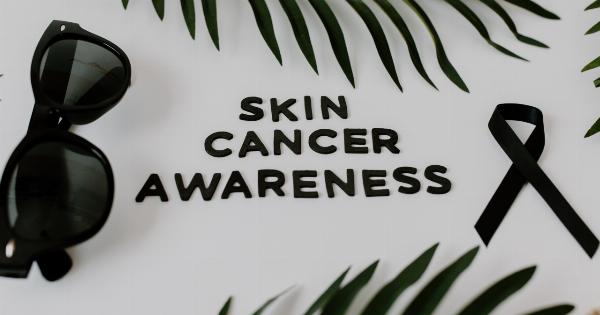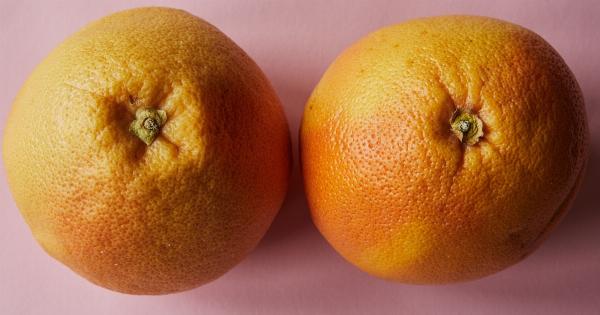Breast cancer is the most common cancer among women worldwide. While modern medicine has made significant advancements in its treatment, preventing its recurrence is of paramount importance.
One way to reduce the risk of breast cancer returning is by incorporating a variety of fruits into your diet. Fruits are not only delicious and refreshing, but they are also packed with essential nutrients, vitamins, and antioxidants that can help strengthen your immune system and fight off cancer cells.
In this article, we will explore 30 fruits that have potential anti-cancer properties and can contribute to preventing breast cancer recurrence.
1. Apples
Apples are rich in antioxidants, particularly flavonoids and polyphenols. These compounds have been shown to inhibit the growth of cancer cells. Additionally, apples contain fiber that aids in digestion and helps eliminate toxins from the body.
2. Berries
Strawberries, blueberries, raspberries, and blackberries are all excellent sources of antioxidants. These superfoods are known for their cancer-fighting properties.
They are packed with vitamins and have high levels of anthocyanins, which have been shown to suppress the growth and spread of cancer cells.
3. Citrus Fruits
Oranges, lemons, grapefruits, and other citrus fruits are rich in vitamin C and other antioxidants. Vitamin C helps boost the immune system and aids in the production of collagen, which contributes to healthy skin and tissues.
Citrus fruits also contain limonene, a compound that has been studied for its potential to prevent breast cancer.
4. Grapes
Grapes, especially red and purple varieties, are known for their high antioxidant content. Resveratrol, a compound found in grapes, has anti-inflammatory and anti-cancer properties.
It has been shown to inhibit the growth of cancer cells and prevent the formation of tumors.
5. Pomegranates
Pomegranates are rich in antioxidants, including punicalagins and ellagic acid. These compounds inhibit cancer cell proliferation and promote apoptosis, a process that triggers the death of damaged or abnormal cells.
Pomegranates also have anti-inflammatory properties, which can help reduce the risk of cancer recurrence.
6. Kiwi
Kiwi is a tropical fruit that is loaded with vitamins C and E, as well as other antioxidants. It also contains fiber, which aids in digestion and helps maintain a healthy weight.
Kiwi has been studied for its potential to inhibit tumor growth and reduce the risk of breast cancer recurrence.
7. Watermelon
Watermelon is not only deliciously hydrating but also an excellent source of lycopene, a powerful antioxidant that gives it its red color. Lycopene has been associated with a reduced risk of various cancers, including breast cancer.
8. Avocado
Avocado is a rich source of healthy fats, fiber, and vitamins. It contains a compound called glutathione, which has been studied for its potential anti-cancer properties.
Glutathione helps eliminate toxins from the body and supports the liver’s detoxification process.
9. Tomatoes
Tomatoes are packed with the antioxidant lycopene, which gives them their vibrant red color. Lycopene has been widely studied for its potential to reduce the risk of various cancers, including breast cancer.
Cooking tomatoes actually increases the bioavailability of lycopene, so consider enjoying them in sauces or soups.
10. Papaya
Papaya is rich in vitamin C, vitamin A, and other antioxidants. It contains an enzyme called papain, which has been shown to have anti-cancer effects. Papaya also has anti-inflammatory properties that may help reduce the risk of cancer recurrence.
11. Mango
Mangoes are not only delicious but also full of antioxidants, vitamins, and fiber. They contain a compound called mangiferin, which has been shown to inhibit the growth of cancer cells.
Mangoes also have anti-inflammatory properties that can help reduce the risk of breast cancer recurrence.
12. Pineapple
Pineapple is a tropical fruit rich in bromelain, a group of enzymes that have been shown to have anti-cancer properties. Bromelain helps reduce inflammation and aids in digestion. Pineapple is also a great source of vitamin C and manganese.
13. Guava
Guava is a tropical fruit packed with antioxidants, including vitamin C, lycopene, and quercetin. Quercetin, in particular, has been studied for its potential to inhibit cancer cell growth and prevent cancer recurrence.
Guava is also high in fiber, which aids in digestion and keeps you feeling full.
14. Cherries
Cherries are not only delicious but also loaded with antioxidants and anti-inflammatory compounds. They are particularly rich in anthocyanins, which have been shown to slow down the growth of cancer cells.
Cherries also contain melatonin, which has been associated with a reduced risk of breast cancer.
15. Cranberries
Cranberries are renowned for their ability to prevent urinary tract infections, but they also offer numerous other health benefits.
These tart berries are rich in antioxidants, particularly flavonoids, which have been shown to inhibit the growth of cancer cells. Cranberries are also a great source of vitamin C and fiber.
16. Apricots
Apricots are small, orange fruits that are rich in antioxidants and vitamin A. Antioxidants help protect the body from harmful free radicals, which can contribute to cancer development. Apricots are also a good source of dietary fiber and potassium.
17. Guavas
Guavas are tropical fruits that are loaded with vitamin C and other antioxidants. They have been studied for their potential to inhibit cancer cell growth and induce apoptosis. Guavas also contain dietary fiber and beneficial minerals, such as potassium.
18. Peaches
Peaches are juicy stone fruits that are rich in antioxidants, particularly vitamin C and beta-carotene. These antioxidants help in maintaining the health of cells and tissues.
Peaches also have anti-inflammatory properties that can help reduce the risk of cancer recurrence.
19. Dragon Fruit
Dragon fruit, also known as pitaya, is a tropical fruit that is rich in antioxidants, vitamins, and fiber. It contains phytochemicals such as betacyanins, which have been associated with anti-cancer properties.
Dragon fruit also has anti-inflammatory effects that may help prevent cancer relapse.
20. Bananas
Bananas are a great source of natural sugars and provide a quick energy boost. They are also rich in fiber, vitamins, and essential minerals. Bananas contain a unique compound called lectin, which has been studied for its potential anti-cancer effects.
21. Lemons
Lemons are citrus fruits that are rich in vitamin C and other antioxidants. They are known for their detoxifying properties and their ability to support liver function.
Lemons also contain limonoids, which have been studied for their potential to prevent cancer.
22. Kiwifruit
Kiwifruit, also known as Chinese gooseberry, is a nutrient-dense fruit that is packed with vitamins, minerals, and antioxidants.
It is particularly rich in vitamin C, vitamin E, and polyphenols, which have been studied for their potential to reduce the risk of cancer recurrence.
23. Oranges
Oranges are a classic source of vitamin C and contain a variety of other essential nutrients. Vitamin C helps boost the immune system and supports the body’s natural defense against cancer cells.
Oranges also contain flavonoids, which have been associated with a reduced risk of breast cancer.
24. Blackberries
Blackberries are delicious and packed with vitamins, minerals, and antioxidants. They are particularly rich in anthocyanins, which give them their dark color and have been studied for their potential to prevent cancer cell growth.
Blackberries also contain ellagic acid, which has been associated with a reduced risk of breast cancer.
25. Raspberries
Raspberries are another berry powerhouse that is packed with essential nutrients and antioxidants. They are particularly rich in ellagic acid, which has been shown to have anti-cancer effects.
Raspberries also contain dietary fiber, which aids in digestion and helps maintain a healthy weight.
26. Strawberries
Strawberries are not only delicious but also rich in antioxidants, vitamins, and minerals. They are particularly high in vitamin C and anthocyanins, which have been associated with a reduced risk of breast cancer.
Strawberries also contain ellagic acid, which helps neutralize harmful chemicals in the body.
27. Blueberries
Blueberries are often referred to as a superfood due to their numerous health benefits. They are packed with antioxidants and phytochemicals that can help fight off cancer cells.
Blueberries also contain fiber, which aids in digestion and helps regulate blood sugar levels.
28. Elderberries
Elderberries are small, dark berries that are rich in antioxidants and immune-strengthening compounds. They have been studied for their potential to inhibit cancer cell growth and reduce the risk of cancer recurrence.
Elderberries are also known for their antiviral properties and their ability to support respiratory health.
29. Lychee
Lychee is a tropical fruit that is rich in vitamin C, vitamin B-complex, and antioxidants. It contains flavonoids, which have been studied for their potential anti-cancer effects.
Lychee also has anti-inflammatory properties that may help reduce the risk of breast cancer recurrence.
30. Guava Fruit
Guava fruit is a nutritious tropical fruit that is packed with vitamins, fiber, and antioxidants. It contains lycopene, which has been associated with a reduced risk of breast and other cancers.
Guava fruit also has antimicrobial and anti-inflammatory properties that can benefit overall health.

















